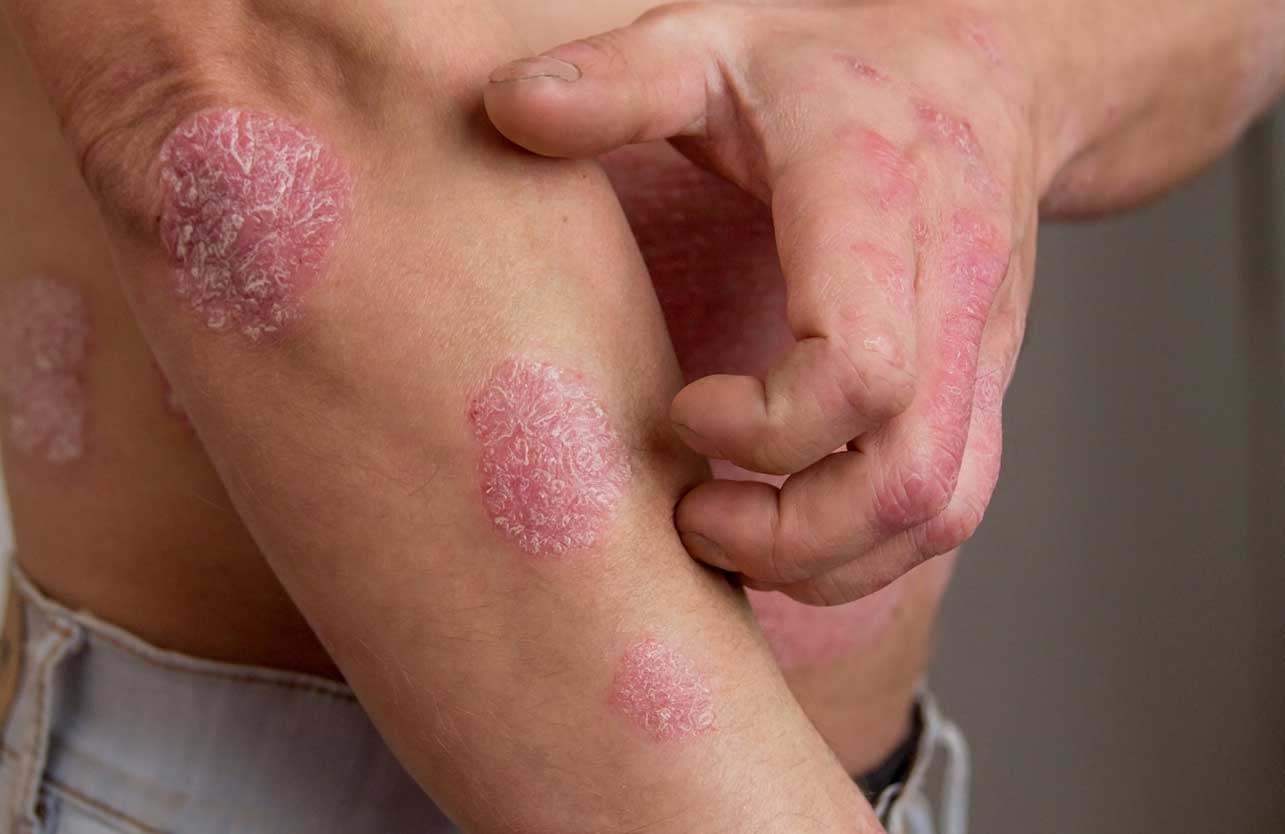What is Psoriasis? Symptoms and Treatment Options
What is Psoriasis?
Psoriasis is a chronic autoimmune skin disease characterized by accelerated skin cell production, causing thickening, redness, and scaling of the skin. Commonly occurring worldwide, psoriasis is not contagious but significantly impacts the quality of life.
Dermatology specialist Assoc. Prof. Dr. Ezgi Özkur has extensively researched psoriasis, providing innovative approaches to managing and treating the disease.
Symptoms of Psoriasis
Psoriasis symptoms vary between individuals but commonly include:
- Thick, silvery-white scales
- Red, raised patches
- Itching, burning, or pain
- Joint pain and swelling (in cases of psoriatic arthritis)
- Thickened, deformed, or discolored nails
Types of Psoriasis
Different types of psoriasis include:
- Plaque Psoriasis: The most common type, characterized by thick skin plaques.
- Guttate Psoriasis: Typically affects children and young adults, appearing as small drop-shaped lesions.
- Inverse Psoriasis: Occurs in skin folds like armpits and groin.
- Pustular Psoriasis: Rare type characterized by pus-filled blisters.
- Erythrodermic Psoriasis: Widespread redness and scaling that may require urgent medical attention.
Factors Triggering Psoriasis
Although the exact cause remains unclear, psoriasis triggers are believed to include:
- Genetic predisposition
- Immune system abnormalities
- Stress and psychological trauma
- Infections (especially throat infections)
- Skin injuries
- Certain medications (e.g., beta blockers)
Treatment Options for Psoriasis
While psoriasis cannot be completely cured, symptoms can be effectively controlled and managed:
Topical Treatments
- Corticosteroid creams
- Vitamin D analogues
- Coal tar preparations
- Calcineurin inhibitors
Phototherapy (Light Therapy)
- UVB therapy
- PUVA therapy (psoralen and UVA)
Systemic Treatments
- Methotrexate
- Cyclosporine
- Retinoids
- Biological agents (adalimumab, ustekinumab, etc.)
Home Care Tips for Psoriasis
- Keep skin moisturized regularly
- Take short, lukewarm showers
- Apply stress management techniques
- Avoid alcohol and smoking
- Maintain a balanced and healthy diet
Recommendations from Dr. Ezgi Özkur for Psoriasis Management
Dr. Ezgi Özkur emphasizes the importance of regular follow-up and personalized treatment plans. Patients should maintain close communication with their dermatologist and regularly assess their treatment progress.

